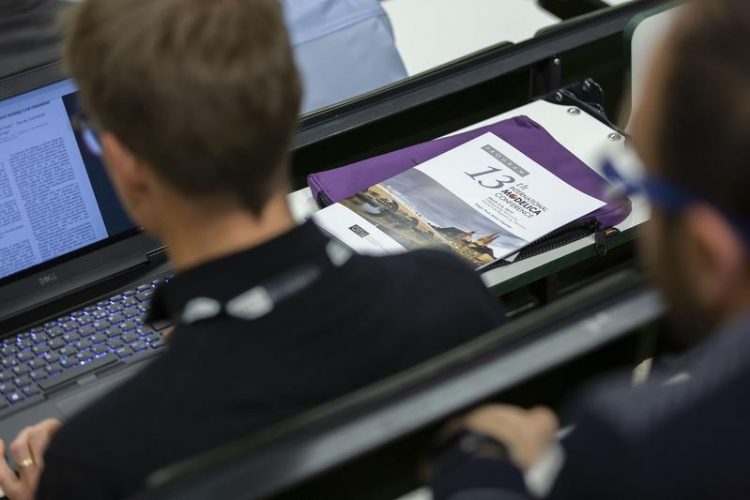International Modelica Conference with 330 visitors from 21 countries at OTH Regensburg

At the 13th International Modelica Conference at OTH Regensburg the 330 participants from 21 countries were able to exchange their experiences with the programming language “Modelica”. Photo: OTH Regensburg / Florian Hammerich
The 13th International Modelica Conference was held at OTH Regensburg from March 4 – 6, 2019. Prof. Dipl.-Ing. Anton Haumer of the Faculty of Electrical Engineering and Information Technology, and President Prof. Dr. Wolfgang Baier welcomed 330 participants from 21 countries to the event.
Modelica is an equation-based, object-oriented programming language for modeling complex physical systems with components from electrical engineering, mechanical engineering, thermodynamics and control technology.
It is used for example in the automotive and aircraft industries, robotics, process and power plant engineering as well as in energy efficiency systems in buildings.
During the conference, attendees were able to interact with industrial users and exchange their views and experiences with other universities.
The Modelica language is also supported by open-source programs, so it is widely used by students of technical courses at OTH Regensburg.
The Proceedings of the conference are published by Linköping University Electronic Press and are now available to download on http://www.ep.liu.se/ecp/contents.asp?issue=157.
Wissenschaftliche Ansprechpartner:
Prof. Dr. Anton Haumer, anton.haumer@oth-regensburg.de
Media Contact
All latest news from the category: Event News
Newest articles

First-of-its-kind study uses remote sensing to monitor plastic debris in rivers and lakes
Remote sensing creates a cost-effective solution to monitoring plastic pollution. A first-of-its-kind study from researchers at the University of Minnesota Twin Cities shows how remote sensing can help monitor and…

Laser-based artificial neuron mimics nerve cell functions at lightning speed
With a processing speed a billion times faster than nature, chip-based laser neuron could help advance AI tasks such as pattern recognition and sequence prediction. Researchers have developed a laser-based…

Optimising the processing of plastic waste
Just one look in the yellow bin reveals a colourful jumble of different types of plastic. However, the purer and more uniform plastic waste is, the easier it is to…



